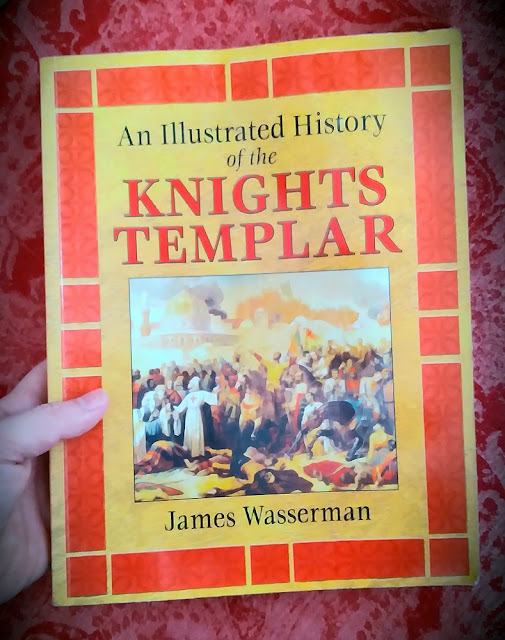 |
| An Illustrated History of the Knights Templar. James Wasserman. Ordo Templi Orientis. Occult |
James Wasserman passed away a couple years ago. He was known for his involvement in Ordo Templi Orientis and for his work as an author/editor/publisher of Occult books. He also wrote a few great books on the Templars. "An Illustrated History of the Knights Templar" is very well written in addition to being lavishly illustrated.
Presents the myths and historical truths of the Knights Templar, the elite warrior army of the pope who were destroyed as heretics some 700 years ago
Examines the evidence of the Templar connections to the Assassins and the Cathars
Includes more than 170 period illustrations and contemporary photos of former Templar strongholds in Europe and Jerusalem
Despite the increasing scholarship devoted to the study of the Templar order, founded in 1119, the mystery surrounding the Templars endures. Secret societies from the Freemasons to the Ordo Templi Orientis claim descent from this religious order of warrior-monks. As the private army of the pope, the Knights Templar were initially established to protect Christian pilgrims traveling to the Holy Land but grew to become one of the most powerful organizations in the Middle Ages. With period illustrations from manuscripts from the Crusades, interpretive romantic paintings from the 18th and 19th centuries, and contemporary photos by Steven Brooke and others of former Templar strongholds in Europe and Jerusalem, James Wasserman, author of the bestselling The Templars and the Assassins, provides a fascinating history of the Order and the many mysteries and legends that surround it.
Wasserman presents the evidence for the Templar connection to mystical Islamic organizations such as the Assassins as well as their ties to “heretical” groups such as the Cathars, who were targeted by a crusade in southern France to expunge the challenge they presented to the orthodoxy of their time. In addition to providing an overview of the Templars’ actions during the Crusades, Wasserman revisits the trial and the charges leveled against them, showing how the Order was ruthlessly crushed. He also explores the nature of the treasure they left behind, which has fueled popular imagination for centuries.
